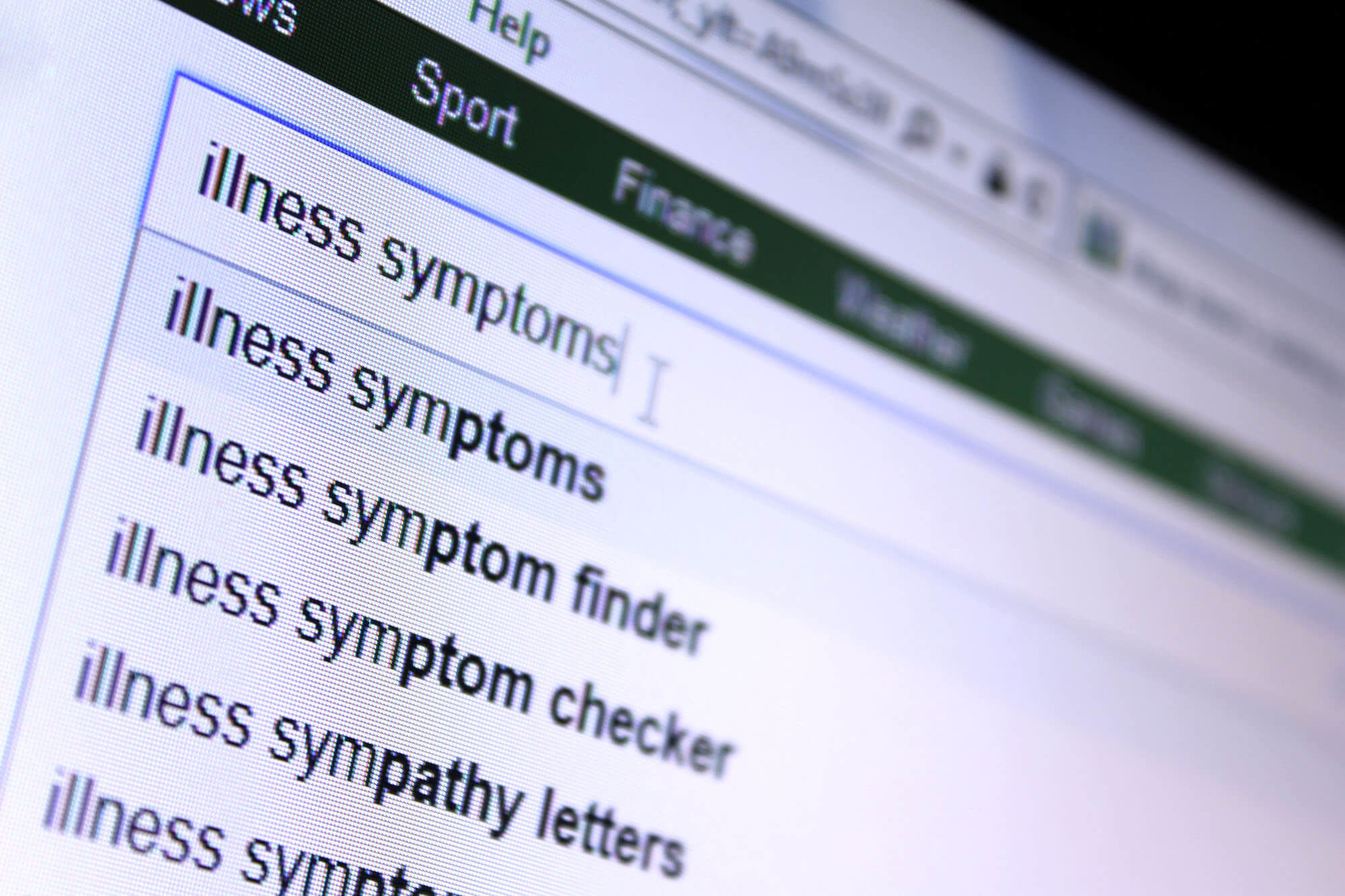There’s something morbidly fascinating about searching your health symptoms online and coming up with a particularly nasty diagnosis, but it’s really not a good idea especially if you are prone to health anxiety.
Australia has one of the best health care systems in the world, with well-trained GPs and specialists supported by first-class diagnostic testing capabilities. If you’re looking for impartial confirmation of this fact, check out a 2017 study by the New York-based Commonwealth Fund, which ranked Australia’s health care system 2nd overall across 11 OECD countries. The internet is not a replacement for an experienced GP. If you must go online to check health symptoms, at least understand the limitations, and factor in the below risks.
Risks You Take when you Trawl Dr Google for Health Diagnoses
- You could be feeding yourself information that’s just plain wrong or importantly, out of date – take Wikipedia for example, apparently it’s the sixth most popular website on the internet for researching health problems. News flash it’s not totally reliable for health information!
- It’s difficult to confirm a diagnosis based purely on answering ‘yes’ to a list of symptoms. A website cannot give you a blood test, an X-ray or an MRI, it can’t even take a swab or collect a urine sample. These diagnostic tools are widely used by GPs for a very good reason. They confirm diagnosis and enable your GP to determine an appropriate treatment plan.
- You risk scaring the bejeezus out of yourself. When we rely on Dr Google, it’s highly likely the internet will diagnose us with cancer! In fact a British study of online data, conducted by health insurer Bupa, found that 47% of searches for an illness brought up at least one cancer result. Human nature being what it is; we tend to gravitate to the worst possible news (and then start obsessively researching cancer treatments). This is no joke, especially for a group of people whose behaviour marks them out as cyberchondriacs.
What is a Cyberchondria?
The British media has been credited with bringing the term ‘cyberchondriac’ into the mainstream consciousness in 2001, in reference to people with excessive anxieties about their health, who trawl the internet looking for medical information. Critically this trawling habit tends to make their anxiety worse.
While cyberchondria is not listed in as a psychiatric illness; research published in 2015 in Psychiatry Research indicated a relationship between cyberchondria and Obsessive Compulsive Disorder. People who are prone to excessive health anxiety only make themselves more stressed googling online symptoms. They’d be much better to go to their GP where they’d likely be reassured.
That Doesn’t Mean the Internet is Completely Unhelpful
According to a 2018 report by the Australian Institute of Health and Welfare (AIHW) 78% of Australian adults use the internet to find health-related information. This is not necessarily a bad thing. A survey conducted by the Pew Research Centre (in America) in 2013 found that people who learned about health topics online were more likely to receive better treatment. This may be because online research has improved their health literacy; so they know what questions to ask and what information to provide to their GP.
The important thing to note is that online use can be positive when paired with real world treatment. Provided you are accessing reputable health resources AND that you recognise the limitations of Dr Google, online health research can be a helpful addition to but not a replacement for seeing a doctor.
Contact Hallets Medical Services today if you have any health concerns.
